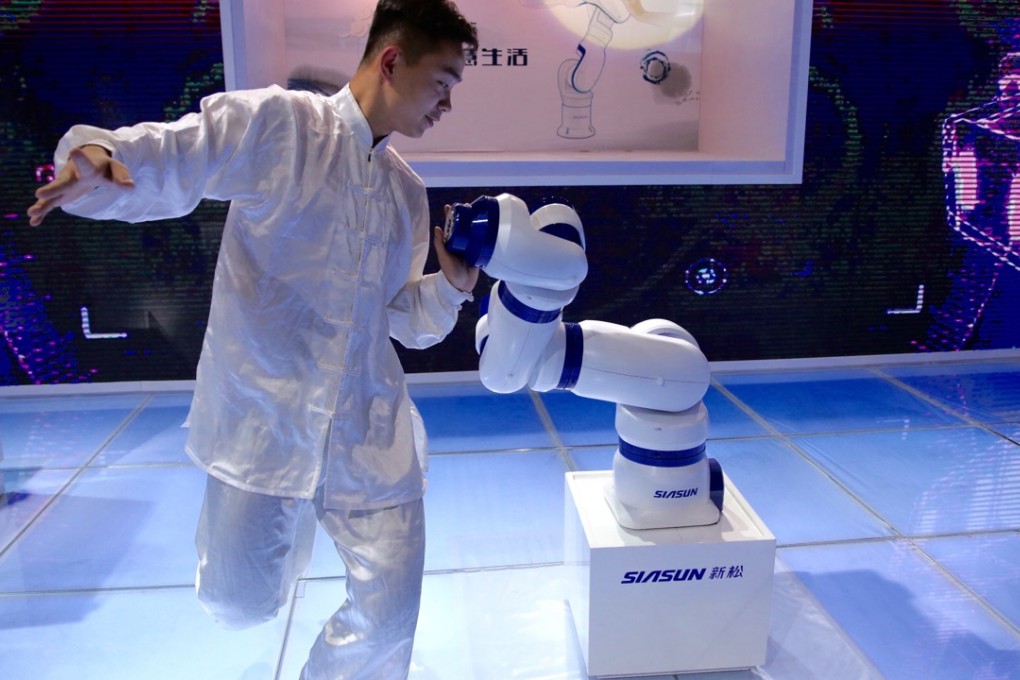New | China’s robot sector needs to pick up pace to upgrade manufacturing and rival foreign competitors, say experts
China has high hopes for robotics to transform manufacturing, but the industry still falls far behind its foreign competitors, experts say

China’s robot industry is not yet mature enough to contribute to upgrading the country’s manufacturing sector, industry insiders and foreign players say.
There are more than 1,000 robot-related firms across China, but quality – not quantity – is the robot sector’s biggest challenge, according to Qu Daokui, chairman of Siasun Robot and Automation, a Shenyang-based industrial robot producer.
READ MORE: Chinese team expects to have first robot in space by 2020 to fix orbiting satellites
China plans to boost the development of robotic tools within the next five years as it moves to transform its manufacturing industry with high-end technology and automated production.
But its robot sector “lacks core technology” and was generally stuck at “low-end application in a high-end industry, and under pressure of being marginalised in Western-dominated markets”, Qu told the ongoing World Robot Conference in Beijing on Tuesday.
The mainland sold 56,000 units of robots last year, accounting for a quarter of global sales, Qu said. But the number of robots made for every 10,000 manufacturing worker was just 30, much lower than South Korea’s 437 and Germany’s 282, he said. The robot sector was also far from meeting the Ministry of Industrial and Information Technology’s target to develop the know-how of manufacturing industrial robots’ key parts.
“Key parts of industrial robots, such as sensors and motors, are still reliant on imports, and not many robot makers are ready for mass production,” said a general manager with a government-backed technology firm in Sanming, Fujian province.